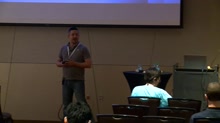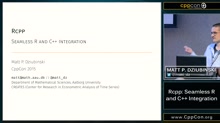C++ Weekly Episode 26: Language Features Removed in C++17—Jason Turner
Episode 26 of C++ Weekly.
Language Features Removed in C++17
by Jason Turner
About the show:
C++17 has not only added many new interesting things, it has removed and deprecated a few outdated features as well.

 Have you registered for CppCon 2016 in September?
Have you registered for CppCon 2016 in September?  Have you registered for CppCon 2016 in September?
Have you registered for CppCon 2016 in September?  Have you registered for CppCon 2016 in September? Don’t delay –
Have you registered for CppCon 2016 in September? Don’t delay –  Have you registered for CppCon 2016 in September?
Have you registered for CppCon 2016 in September?  Have you registered for CppCon 2016 in September? Don’t delay –
Have you registered for CppCon 2016 in September? Don’t delay –